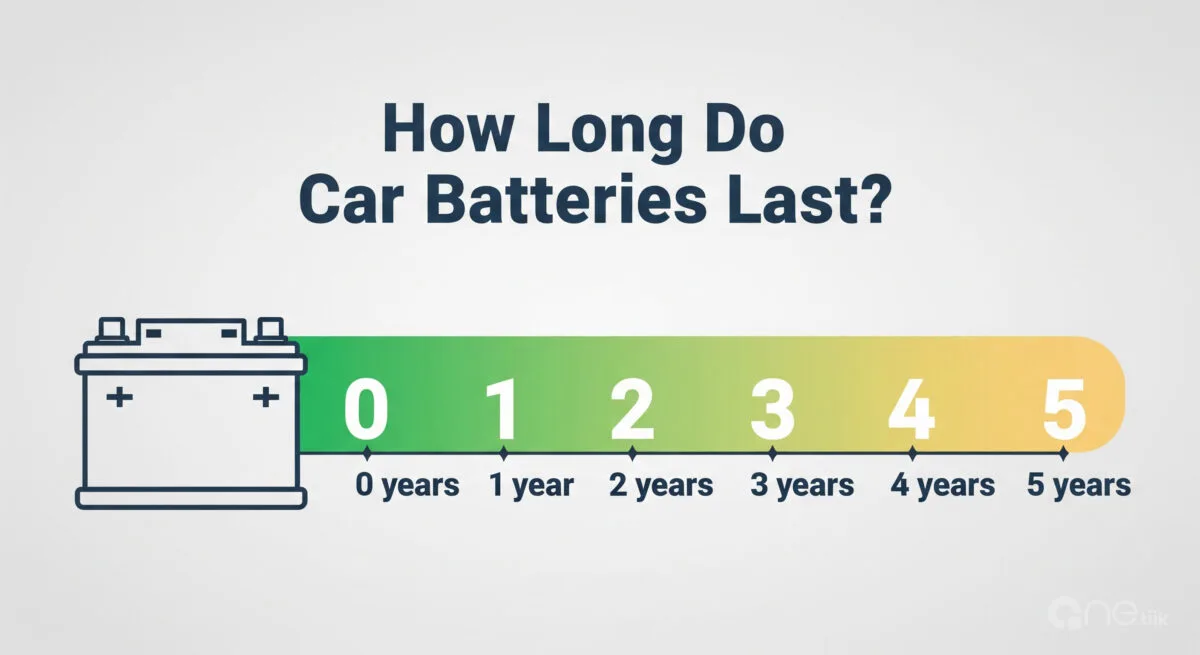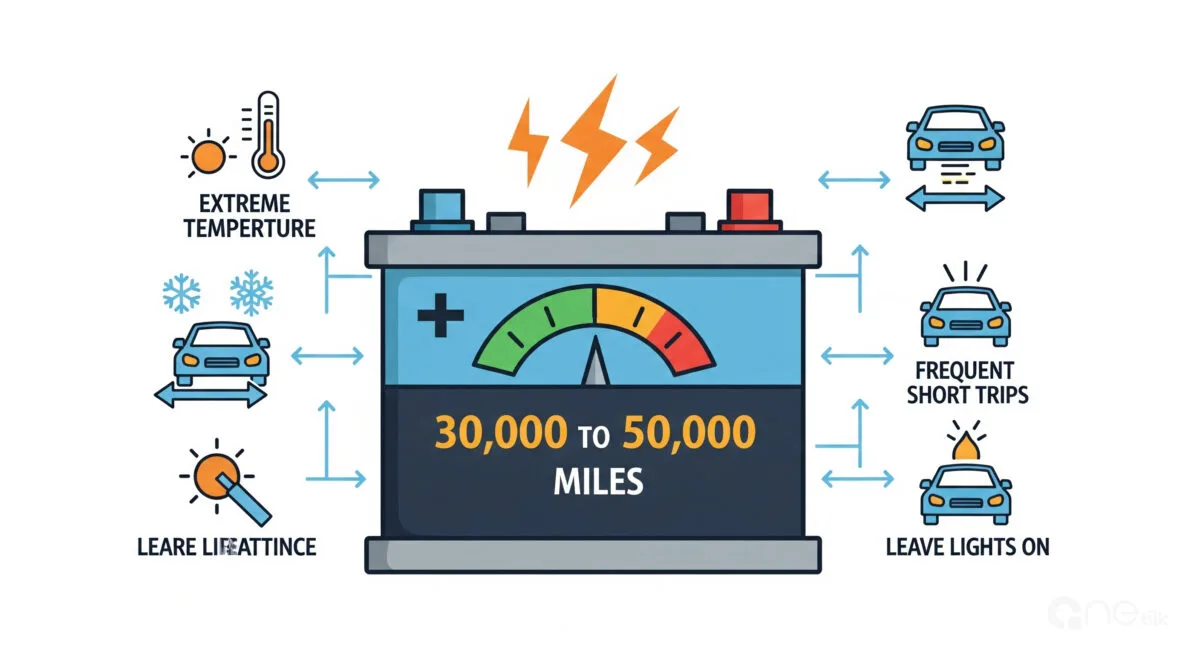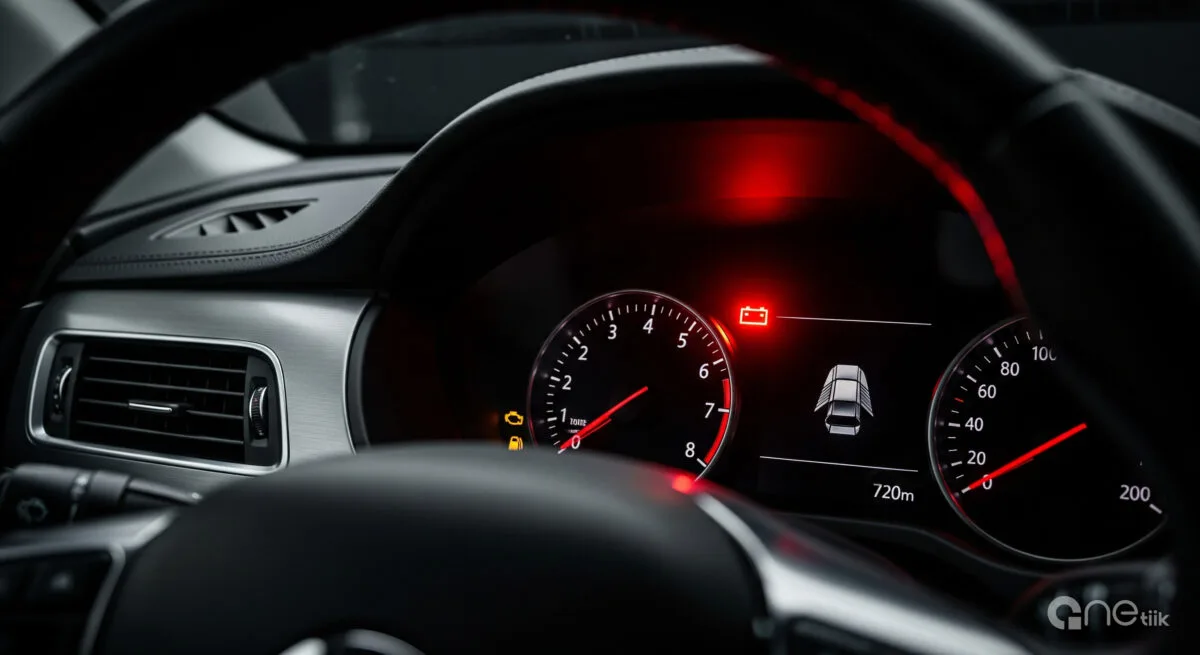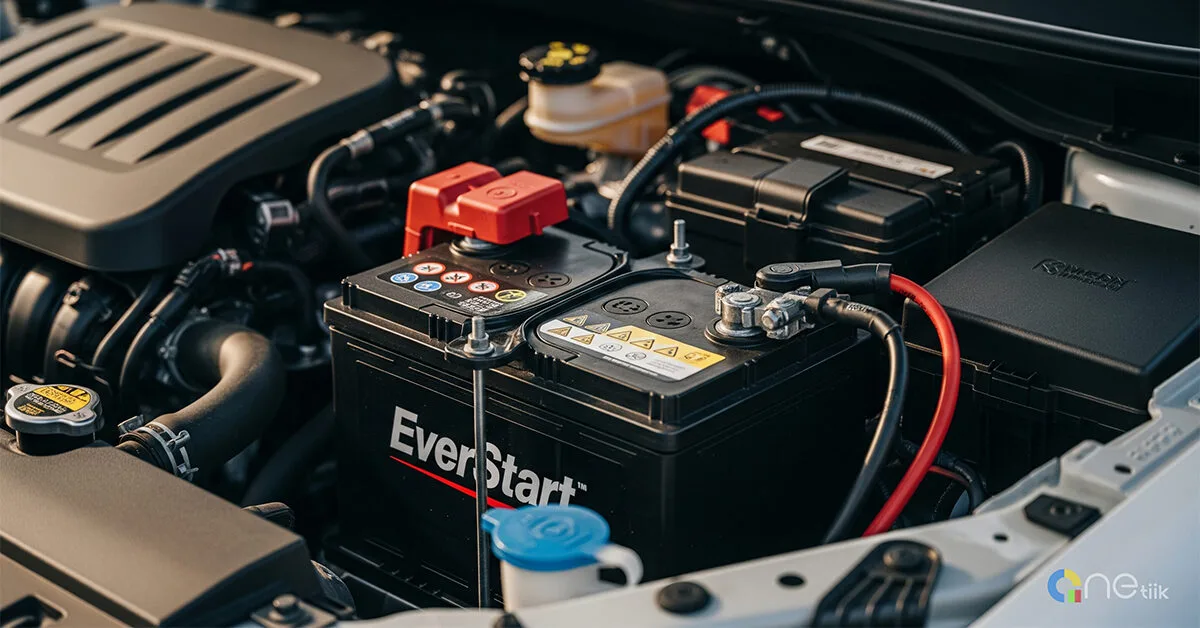Understanding How Long Car Batteries Last
Car batteries may not be the most glamorous part of your vehicle, but they are one of the most important. Without them, your car won’t start, and modern electronics like infotainment systems, headlights, and sensors wouldn’t function. That’s why many drivers often wonder: how long do car batteries last?
The short answer: most car batteries last between 3 to 5 years. However, several factors climate, driving habits, vehicle type, and maintenance, play a big role in how long your battery will last. In this guide, we’ll break down everything you need to know about car battery lifetime, average lifespan of a car battery, warning signs, and tips to make your battery last longer.
1. How Long Do Car Batteries Last on Average?

On average, a car battery’s lifespan is 3–5 years. This is widely accepted by manufacturers, roadside assistance services, and mechanics.
- In mild climates, a battery may last closer to 5 years.
- In hot climates, lifespan can shrink to just 2–3 years. Heat accelerates internal chemical breakdown.
- In cold climates, batteries lose efficiency in starting power but may last longer overall if properly maintained.
Other terms you might hear:
- Car battery lifetime
- Car battery life expectancy
- Car battery normal life
- Average car battery life
- Typical car battery life
All of these point to the same general range: 3–5 years of service under average conditions.
Factors That Affect Car Battery Life
Every vehicle battery’s life span depends on several conditions:
A. Climate
Heat causes fluid inside batteries to evaporate faster, leading to corrosion and reduced car battery life span. Freezing weather makes it harder for batteries to deliver power because chemical reactions slow down.
B. Driving Habits
- Short trips prevent batteries from fully recharging.
- Long highway drives help extend normal battery life by keeping it charged.
C. Vehicle Type and Electronics
Cars with many electronic systems (heated seats, infotainment, sensors) put extra demand on batteries, shortening the average lifespan of a car battery.
D. Battery Quality
Not all batteries are built the same. Premium brands or Absorbent Glass Mat (AGM) batteries usually last longer.
How Many Years or Miles Should a Car Battery Last?

- In years:
A car battery’s lifetime typically runs 3–5 years, with some lasting up to 6 or 7 if well cared for. - In miles:
Expect 30,000 to 50,000 miles of usage before replacement is needed.
Just like monitoring car battery health is important for your vehicle’s performance, taking care of your body’s defenses is equally vital. Curious about boosting your immunity? Check out our complete guide on Immuno Boost
Can a Car Battery Last 10 Years?
Some drivers ask: “Can a car battery last 10 years?” The answer: extremely rare.
A decade-long car battery life expectancy is possible only with:
- A top-quality AGM battery,
- Light, consistent driving,
- Perfect climate conditions, and
- Excellent maintenance.
For most vehicles, however, it’s safer to replace a battery before the 5-year mark.
Signs Your Car Battery Needs Replacement

A car battery rarely dies suddenly; it shows warning signs first:
- Slow cranking or clicking when starting.
- Dim headlights or weak electronics.
- Dashboard battery warning light.
- Swollen battery case or corrosion on terminals.
- Battery age over 3 years (test annually).
Life Cycle of a Car Battery
A car battery’s life cycle refers to how many charge–discharge cycles it can handle before losing capacity.
- Lead-acid batteries (standard type) aren’t designed for deep discharges. Frequent draining shortens their life cycle.
- AGM batteries can withstand more cycles and usually last longer.
Many mechanics use a car battery life chart to estimate performance decline over time. This shows how capacity drops after 3–5 years of usage.
Car Battery Life for Different Vehicles
Passenger Cars
Most follow the 3–5 year average.
Trucks and SUVs
Truck batteries are larger and sometimes more durable, but higher electrical loads mean they also last 3–6 years.
- Average life of a truck battery: 4–5 years.
- How long do truck batteries last? Usually similar to cars, though heavy-duty use may shorten lifespan.
Tips to Extend Car Battery Life
You can’t stop natural wear, but you can slow it down:
- Drive longer trips to allow full recharging.
- Keep terminals clean using a baking soda solution to prevent corrosion.
- Limit accessory use when the engine is off.
- Secure the battery to reduce vibration damage.
- Protect from extreme heat/cold, park in shade or garage if possible.
- Test regularly after 3 years of use.
- Use a battery maintainer if your car sits unused for weeks.
These habits can push a car battery’s normal life to the higher end of its expected range.
Car Battery Lifespan Quick Reference Table
| Metric | Typical Value | Notes |
|---|---|---|
| Car battery lifespan | 3–5 years | Standard lead-acid |
| Extended life (AGM or premium) | 5–7 years | Under ideal care |
| Car battery life in miles | 30,000–50,000 miles | Varies with driving |
| Truck battery life | 3–6 years | Similar to cars |
| Can a car battery last 10 years? | Rare, exceptional | Not typical |
Conclusion
So, how long do car batteries last?
- On average, 3–5 years or 30,000–50,000 miles.
- With excellent care, some may last up to 6–7 years.
- 10-year lifespans are extremely rare.
To avoid being stranded, start checking your battery after its third year of service and replace it proactively when signs of wear appear. By following simple maintenance tips, you can maximize your car battery life expectancy and keep your vehicle running smoothly.
FAQ – Signs Your Car Battery Needs Replacement
How do I know if my car battery needs replacement?
If your car is slow to start, headlights are dim, you see corrosion on the terminals, or the battery warning light is on, these are clear signs your car battery needs replacement.
How long do car batteries last before needing replacement?
On average, car batteries last between 3 to 5 years. However, extreme temperatures, frequent short trips, and a lack of maintenance can shorten the typical car battery life.
Can a weak car battery affect overall vehicle performance?
Yes. A weak battery can cause issues such as dim lights, malfunctioning electronics, and difficulty starting the engine. Replacing it on time helps maintain vehicle performance.
What are the common signs of a dying car battery?
The most common signs include: “Slow engine crank, Battery warning light on dashboard, Electrical issues or flickering lights, Corroded terminals, Needing frequent jump-starts”
How often should I check my car battery health?
It’s recommended to check your car battery every 6 months or before long trips. A mechanic can test the battery life expectancy and confirm if it needs replacement.
Can weather conditions shorten a car battery’s lifespan?
Yes. Hot weather accelerates fluid evaporation inside the battery, while cold weather makes it harder for the battery to deliver power. Both conditions reduce car battery lifespan.
Is it better to recharge or replace a weak car battery?
If the battery is near the end of its typical 3–5 year life span, replacement is the best option. Recharging may help in the short term, but won’t fix an old or failing battery.












